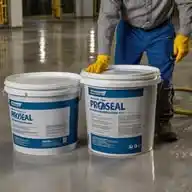
CONSTRUCTION WATERPROOFING TIPS NIGERIA
February 2, 2025 at 08:26 AM
The Silent Guardian: The Importance of Structural Waterproofing in the Nigerian Construction Industry.
In Nigeria's ever-evolving construction landscape, structural waterproofing remains one of the most overlooked yet crucial elements of building design and longevity. While many developers focus on aesthetics and functionality, neglecting waterproofing can lead to devastating consequences—compromised structural integrity, health hazards, and skyrocketing maintenance costs. It’s not just about keeping water out; it’s about protecting investments, preserving safety, and ensuring the durability of our buildings in Nigeria's unique climate.
What is Structural Waterproofing?
Structural waterproofing refers to the design, specification, and installation of materials and systems that prevent water ingress in buildings and infrastructure. It’s the invisible shield that protects foundations, basements, walls, and roofs from water damage, whether from rain, groundwater, or humidity. This process isn’t limited to residential homes; it extends to commercial buildings, bridges, tunnels, and even parking structures.
Waterproofing Design and Specification: More Than Just a Layer
Waterproofing starts long before the first brick is laid. It begins at the design stage, where architects and engineers specify the right materials and techniques based on a building’s location, intended use, and environmental exposure. For Nigeria, this means factoring in:
Tropical Climate: Heavy rains, high humidity, and fluctuating temperatures require robust waterproofing solutions.
Soil Conditions: In areas with high water tables or clay-heavy soils, groundwater can easily seep into foundations if not properly protected.
Urban Development: As cities like Lagos and Abuja continue to expand, buildings are pushed closer together, making effective waterproofing even more critical.
The specification stage ensures that only high-quality, tested materials are chosen. Cutting corners here often results in leaks, dampness, and, ultimately, structural failure.
Installation: Where Expertise Meets Execution
No matter how good the materials are, improper installation can render them useless. In Nigeria, poor workmanship remains one of the leading causes of waterproofing failure. This isn’t just about hiring workers; it’s about ensuring they are trained in the latest techniques and understand the science behind waterproofing.
Using the wrong application method, ignoring surface preparation, or skipping crucial steps like priming can create weak points where water finds its way in. Waterproofing should always be handled by professionals who specialize in this field, not just general contractors looking to save costs.
Why Waterproofing is Crucial in Nigeria
1. Protecting Your Investment: Whether you're constructing a family home or a commercial property, water damage can lead to expensive repairs. Damp walls, peeling paint, and mold not only degrade aesthetics but also reduce property value.
2. Health Implications: Water intrusion leads to mold growth, which can cause respiratory issues and allergies. In a country where healthcare access is uneven, preventing these problems is essential.
3. Climate Challenges: Nigeria's rainy season is notorious for flooding and heavy downpours. Without proper waterproofing, structures are constantly at risk, especially in flood-prone areas like Lagos.
4. Long-Term Durability: Proper waterproofing extends the life of your building. It prevents corrosion of reinforcement steel, structural weakening, and foundational shifts caused by water infiltration.
The Cost of Ignorance
Many Nigerian builders still consider waterproofing an unnecessary luxury, reserved for high-end projects or wealthy clients. This misconception couldn’t be further from the truth. Ignoring waterproofing doesn’t save money—it only delays inevitable and costly repairs. Cracked walls, failing foundations, and weakened structural elements can turn into safety hazards, leading to partial or total building collapse.
Raising Awareness: The Role of Local Brands
In the past, waterproofing products in Nigeria were imported, expensive, and inaccessible to the average builder. But today, local brands like PROSEAL have made quality waterproofing solutions affordable and readily available. These brands are also instrumental in educating the public, contractors, and engineers about the importance of waterproofing, bridging the knowledge gap that has plagued the industry for years.
Final Thoughts
Structural waterproofing isn’t just a technical requirement; it’s a fundamental pillar of safe, sustainable, and cost-effective construction. As Nigeria continues to grow and urbanize, it's time we stop treating waterproofing as an afterthought and start recognizing it as the silent guardian of our buildings.
Invest in waterproofing today, and protect your tomorrow.
Do you have questions about waterproofing your next project? Share your thoughts in the comments, and let’s build a community that prioritizes durability and safety in Nigerian construction!